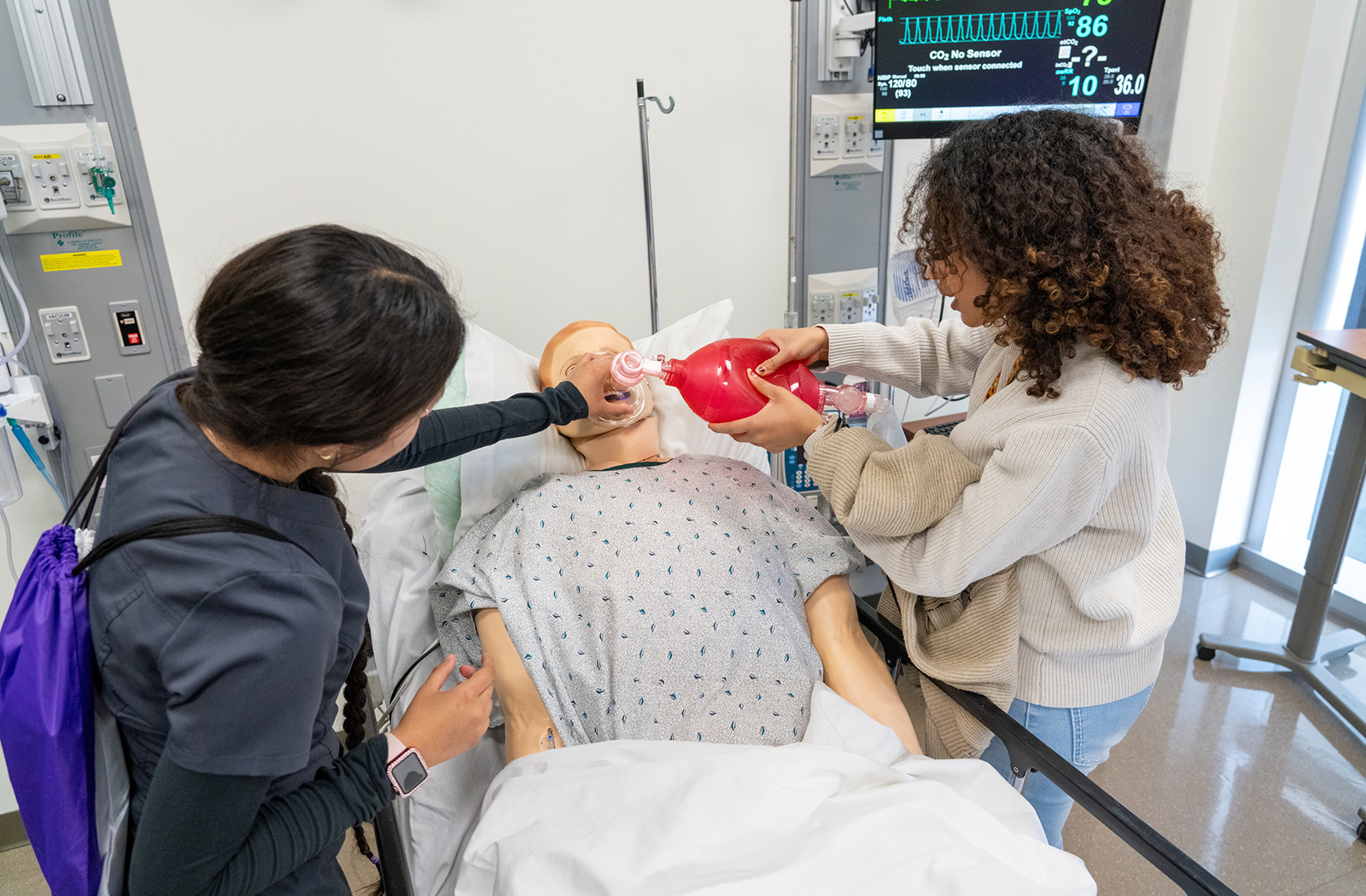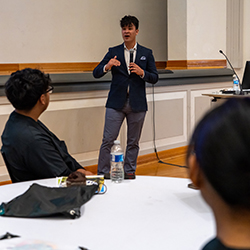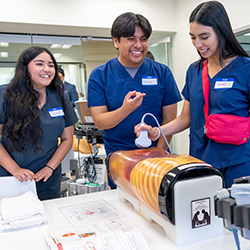
The PACE Conference Welcomed High School Students Interested in Medicine to Learn More about Potential Career Paths

Prioritizing the health and well-being of Arizonans has always been a pillar of the University of Arizona College of Medicine – Phoenix’s mission. To help drive that initiative, the college has worked purposefully to engage local communities in educational opportunities.
To that end, the U of A College of Medicine – Phoenix recently welcomed the Arizona Alliance for Community Health Centers (AACHC) to host the Promoting Academic & Career Experiences (PACE) Conference on the college’s campus.

PACE invites Arizona high school students with an interest in medicine to see what career paths can be opened by studying the health professions.
Angela Bryant works as the Pathways Program Manager at AACHC. She welcomed the high school students to the campus and explained the goal and purpose of the PACE Conference.
“The main part of my job is to bring opportunities like the PACE to high school students in Maricopa County,” Bryant said. “We are extremely excited that you guys are here today and have a chance to gather information from all of our academic partners about career and degree programs.”
Nearly 140 high school students from across Phoenix attended the conference, learning more about the potential health fields they could enter in the future.
Paul Tran, MD, an assistant professor of Child Health and a pediatric gastroenterologist at Phoenix Children’s, served as the event’s keynote speaker.
In his talk, Dr. Tran encouraged the high school students to work against imposter syndrome and not compare their lives to others.
“Those are all voices in your head, and they’re the same voices that are going through my head when I’m standing in front of you,” Dr. Tran said. “You can’t take joy in your own accomplishments or identify who you are if you are constantly comparing yourself to other people.”
Dr. Tran also advised the young students to practice empathetic listening, stressing how physicians should speak to patients about medical terms without over complicating the language.

After Dr. Tran concluded his talk, the high school students embarked on two rotations of their own choosing. Among the activities students could choose were educational exercises in the Center for Simulation and Innovation; an informational session on how to become a nurse; a crash course on phlebotomy; and a tour of the Department of Translational Neurosciences’ lab spaces.
In the lab, they learned about the functions of the inner ear from Ebenezer Yamoah, MD, PhD, a professor of Translational Neurosciences; and got an overview of the department’s research equipment and methods from Kuldeep Gupta, PhD, Jessica Contreras, MS, and Julian Ramos — a research scientist, the lab manager and a research technician, respectively.
Chip Young, manager of the College of Medicine – Phoenix Pipeline Initiatives, said that the PACE Conference provides a rich learning experience for these high school students.
“The PACE Conference is an amazing opportunity to bring high school students from all over Maricopa County together and share their interests in health care,” Young said. “It provides them with an opportunity to learn about different career paths — through hands-on experiences and interactive presentations — showing them that their goals are not just dreams but something real and attainable.”
Since 1985, the AACHC has worked to build a health care system where every Arizonan has an opportunity to thrive.
About the College
Founded in 2007, the University of Arizona College of Medicine – Phoenix inspires and trains exemplary physicians, scientists and leaders to advance its core missions in education, research, clinical care and service to communities across Arizona. The college’s strength lies in our collaborations and partnerships with clinical affiliates, community organizations and industry sponsors. With our primary affiliate, Banner Health, we are recognized as the premier academic medical center in Phoenix. As an anchor institution of the Phoenix Bioscience Core, the college is home to signature research programs in neurosciences, cardiopulmonary diseases, immunology, informatics and metabolism. These focus areas uniquely position us to drive biomedical research and bolster economic development in the region.
As an urban institution with strong roots in rural and tribal health, the college has graduated more than 1,000 physicians and matriculates 130 students each year. Greater than 60% of matriculating students are from Arizona and many continue training at our GME sponsored residency programs, ultimately pursuing local academic and community-based opportunities. While our traditional four-year program continues to thrive, we will launch our recently approved accelerated three-year medical student curriculum with exclusive focus on primary care. This program is designed to further enhance workforce retention needs across Arizona.
The college has embarked on our strategic plan for 2025 to 2030. Learn more.